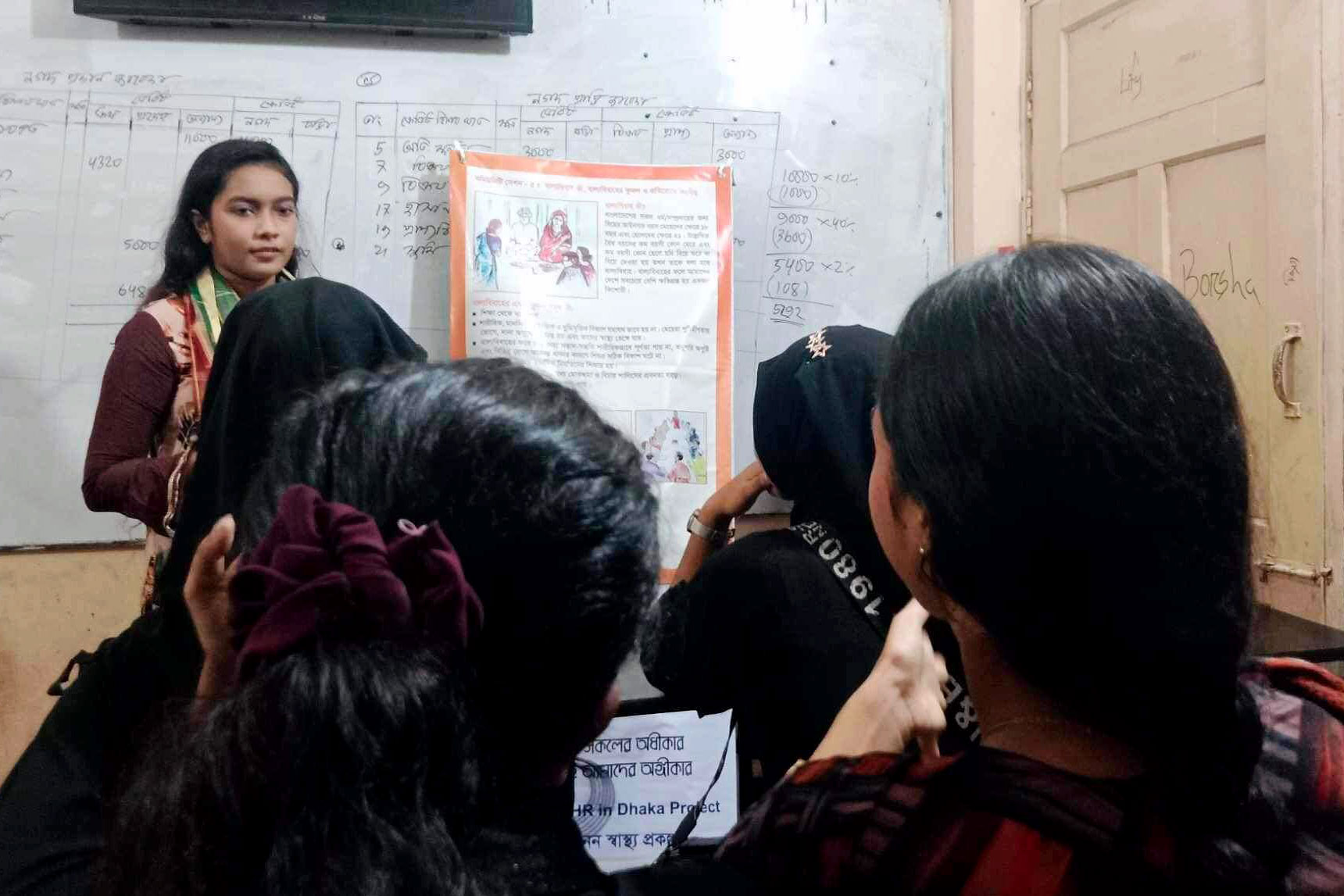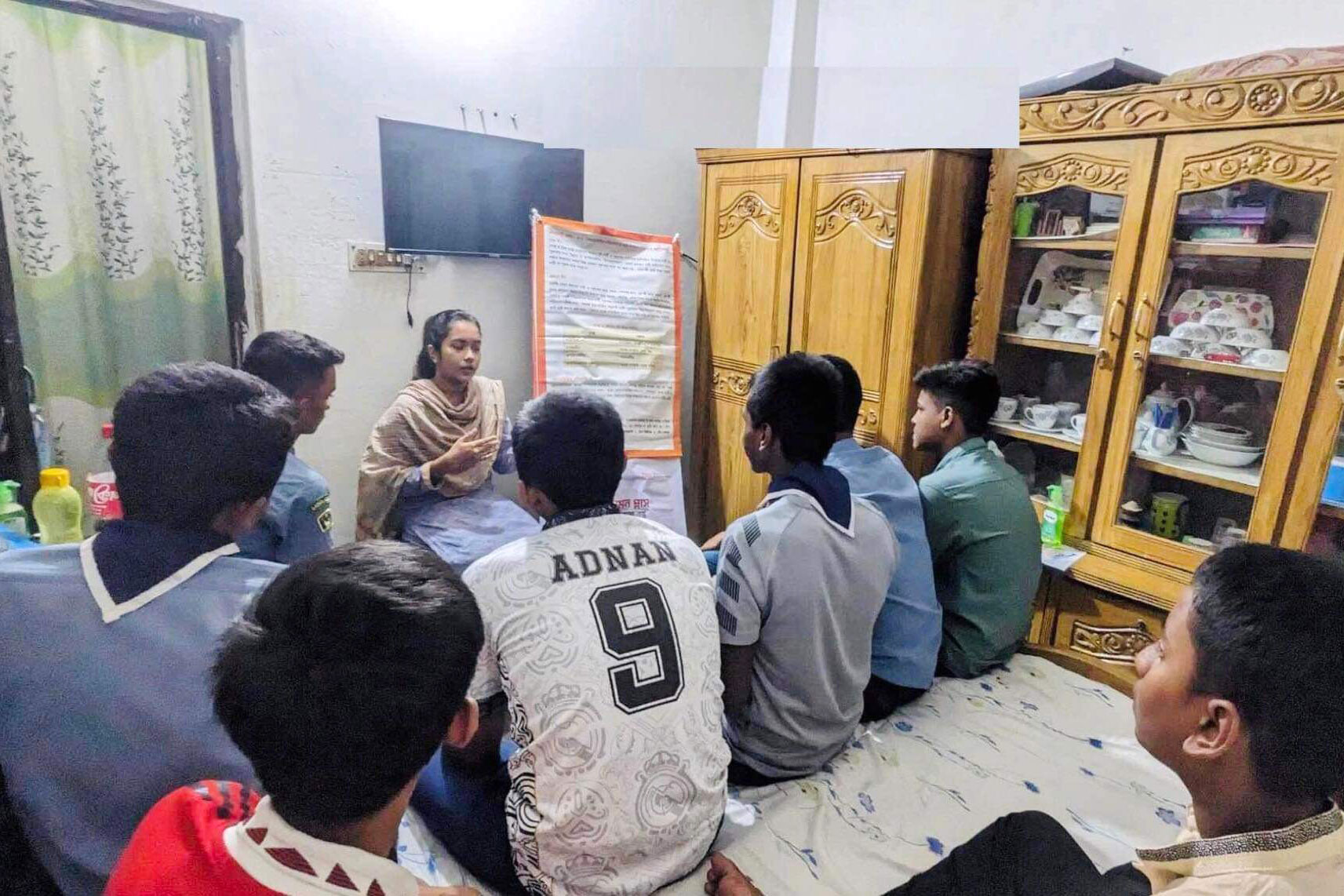Abida Sultana is confident that her studies in English and Literature give her a unique perspective when exploring stories about sexual and reproductive health and rights in different cultural contexts.
The university student doubles up as a youth volunteer and peer group mentor at SERAC Bangladesh, a youth-focused development organization which aims to promote the socio-economic and social status and living standards of poor and vulnerable communities, especially youth, women and children.
Sultana works under the improving Sexual and Reproductive Health and Rights (SRHR) in Dhaka project.
How did you come to get involved with youth and sexual and reproductive health and rights?
It is through personal experiences and academic interests. During my studies in English and Literature, I encountered powerful stories from my classmates highlighting the struggles young people face regarding their sexual and reproductive rights. It also came from the need to engage with and support my peers to ensure sexual and reproductive health services in the community, especially for men, women and adolescents.
Tell us more about the focus of your work at SERAC Bangladesh.
SERAC Bangladesh has been in existence since 1993, and I have been with them for two years, working on the improving SRHR in Dhaka project.
The focus of my work is to raise awareness around sexual and reproductive health and rights, child marriage and the prevention of violence and teenage pregnancy in my community.
What does a day in your life as a youth volunteer look like?
As a youth volunteer, a typical day in my life involves a blend of support, education and community engagement. I start my day by reviewing the previous day’s activities, including workshops or one-stop stations. And then I collect any behavior change communications materials or logistics needed for the sessions. I also meet with my volunteers’ teams to discuss activities, challenges and strategies for the day. We talk about any changes in the program schedules or any challenges.
Then we’ll attend training sessions to enhance knowledge and skills on SRHR and gender-based violence.
There is a lot of communication and leadership and engagement with other peer group mentors monthly to discuss what worked well and what can be improved.
Throughout the day, being a youth volunteer also involves creating a safe and welcoming environment for young people to express themselves.


Photos courtesy of Abida Sultana
What is the organization’s involvement with Ipas?
Our organization is one of the implementing partners working with Ipas Bangladesh in improving sexual and reproductive health and rights during the project. Ipas supports by providing technical assistance and resources to national health volunteers capacity in sexual and reproductive health, education and advocacy. For the other stuff on family planning, menstrual regulation and postabortion care.
Ipas ensures they are equipped to provide accurate information to community health volunteers like us and assists in drafting trainings, models, behavior change communication materials, and toolkits.
How are you and your organization contributing to ending child marriage, teenage pregnancy and school dropout?
We are actively addressing child marriage and teenage pregnancies and organizing communications and school campaigns to educate young people and their families about the negative impacts of child marriage and the importance of education. As a youth volunteer, I provide accurate information on reproductive health. Young people are therefore able to make informed choices and challenge social norms.


